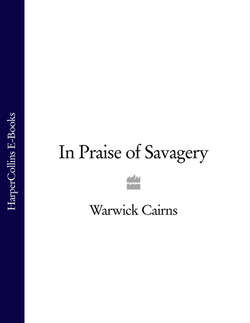Читать книгу In Praise of Savagery - Warwick Cairns - Страница 11
Don’t Tell Others
ОглавлениеSometimes there can be whole days, weeks, months and years that pass you by and it seems just like the blink of an eye.
Then there are other times where the actions of an instant seem to last for ever.
People who have been in car crashes or other near-fatal disasters often talk about time ‘slowing down’. It is said that they are able to recall all sorts of peripheral detail with astonishing accuracy, as if they had the time, in the half-second of their almost-death, to roam the scene with the camera of their mind’s eye, and to record for posterity not just the look of drunken horror on the other driver’s face but the missing second button on his shirt-front; the colour and style of the lead on the dog being walked by the man in the flat cap on the pavement; the words and the patterns on the half-torn circus poster on the wall behind him.
Scientists call this time dilation, and it signifies the feeling of the opening-out of a moment far beyond its normal or expected limits.
There is a reason that it feels like this.
At moments of intense significance and at moments of great physical risk, the brain pulls in all of its resources and processing-power, and crams more observations and more reactions into a fraction of a second than it would normally make use of in a duration many, many times longer. It does this the better to react quickly and effectively, and so to cope with whatever challenges or opportunities it faces.
The result of all of this is that we experience moments that, for good or ill, are more intensely lived, and in which time appears to slow down, or even, on occasion, to stop.
And just as this time dilation exists, so also, I believe, there exists its opposite, which you might, I suppose, call time diminution, if you were to use the same rules of construction. Time diminution, or what you will, is an experience in which large tracts and expanses of time just pass you by, just vanish away unmarked and unnoticed, except when you look back later and think, was that it?, or, where did it all go?
From the end of the talk in the house in the cul-de-sac in Harlow New Town to my next contact with the man, and the visit to his flat in Tite Street, was two years, more or less.
They were two years in which, in one sense, much happened, but in which, in another, the main thing that happened was the passing away of time.
When the meeting had ended, the people there gathered up their coats, and those who drove got out their car-keys, while for those who did not, minicabs and the cars of parents arrived outside. But when he had finished his talk, and when the evening had begun to break up, I went up to him and asked him more questions about his life and times, and we carried on talking even as others were leaving around us, until, at last, there were no other guests left, and the owner of the house was standing there, as if to say, well, haven’t you got a home to go to? The man took a scrap of paper from his pocket and wrote his address on it and handed it to me.
‘If you go on this trip,’ he said, ‘do write and let me know how you get on.’
And then it was outside into the night air.
I applied, but did not get a place.
I also applied for academic scholarships overseas, but did not get them, either.
In the meantime, there was banking to be done, and banking examinations, which I was required to study for.
Months passed in which I undertook two correspondence courses with something called the Rapid Results College. One was in Law Relating to Banking and the other in Economics. In Economics I learnt—the only thing I remember from it now—that if a bank lends money that doesn’t exist, and which hasn’t been minted or printed, or made or planned, it can actually cause that money to come into being, and so increase the money supply.
This is something of a paradox, on a number of levels, in the way that Heisenberg’s Uncertainty Principle is in physics. One of the main levels upon which it is a paradox is that it is, according to the experts, clearly and demonstrably true; and yet, at the exact same time, it has the ability to seem to me to be the most complete and utter nonsense.
At some point during that time I reapplied for the overseas scheme and this time was offered a place. It was to be a trip to America, involving trail-building in the Rocky Mountains and the Appalachians, and also drilling wells for water on a Sioux Indian reservation on the edge of the Badlands in South Dakota.
I still had the scrap of paper Wilfred Thesiger had given me.
I wrote and told him about it.
About a week later a cream-coloured envelope arrived on my doormat.
Inside was a cheque for £300, drawn on a London private bank; and with the cheque was a three-word letter, written in blue-black fountain-pen on embossed headed notepaper.
It said, ‘Don’t tell others.’
